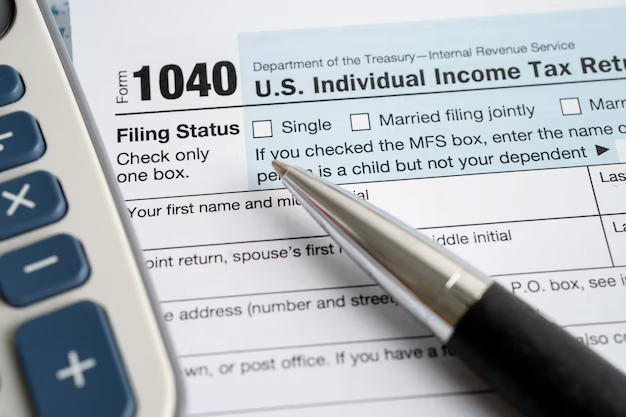Discovering Idaho's Tax Landscape: Is There a State Tax?
At the intersection of personal finance and state regulations lies a common question among residents and potential settlers of Idaho: "Does Idaho have state tax?" With its stunning landscapes and growing communities, Idaho is becoming an increasingly popular place to settle down. If you’re planning a move or simply seeking to better understand the financial implications of living in the Gem State, unraveling this question is crucial. Let’s dig into Idaho’s tax structure, explore related tax topics, and demystify what it means for residents.
Understanding Idaho's State Tax System
When considering state taxes, the primary focus tends to be on income tax and sales tax. Idaho is among the majority of U.S. states that impose an income tax. But that's not all—let's explore what makes up the state's tax system.
Idaho State Income Tax
As of 2023, Idaho imposes a progressive income tax. This means that tax rates increase as income brackets rise. Here's an overview of how Idaho's income tax structure works:
H3: Income Tax Brackets in Idaho
Idaho applies various percentages across several income brackets, ensuring that higher earners contribute a greater share in taxes. The brackets are set annually and may adjust slightly based on inflation and legislative changes. It's crucial for taxpayers to be aware of the current tax year brackets for accurate financial planning.
If you are employed in Idaho, your employer typically withholds state income tax from your paycheck. Meanwhile, self-employed residents must calculate and remit estimated tax payments quarterly. It’s essential to keep track, as underpayments can lead to penalties.
Sales Tax in Idaho
Aside from income tax, Idaho has a state sales tax set at 6%. Unlike the variable income tax, this is a flat rate applied to most retail sales of goods and some services.
H3: What’s Taxable and What’s Not
While many everyday items are taxable, Idaho exempts necessities such as most groceries and prescription medications. However, prepared food (such as restaurant meals) is generally subject to sales tax, which can impact budgeting for dining out.
Property Taxes in Idaho
Another pivotal aspect of Idaho's tax system is its property tax, which directly impacts homeowners and indirectly affects renters.
H3: Property Tax Rates
Property tax rates in Idaho can vary considerably by county due to differences in local budgets, mill rates, and property valuations. Understanding your county's assessment methods and applicable rates can aid in better financial planning, especially if owning a home is part of your goals.
Navigating Tax Deductions and Credits in Idaho
Beyond understanding what taxes you owe a state, identifying deductions and credits can be financially beneficial. Idaho offers several opportunities:
State Tax Deductions
Residents may deduct state sales tax or income tax from their federal taxes, provided they choose itemized deductions over standard. It can be beneficial to compare both methods for maximum savings.
Special Tax Credits
Idaho provides specific tax credits for various circumstances. Examples include credits for contributions to educational institutions or certain energy efficiency upgrades. These can significantly reduce your taxable income.
As always, it's recommended to consult a tax professional or utilize tax software to understand which deductions and credits apply to you.
Practical Tips for Managing Your Taxes in Idaho
Living in Idaho presents unique tax situations that are important to manage effectively. Here are some essential strategies:
- Stay Informed: Tax laws and rates can change annually. Regularly review state updates or consult tax advisors to remain compliant and optimized.
- Organize Records: Keep your tax-related documents, including W-2s, 1099s, and receipts for deductible expenses, organized and accessible. This facilitates a smoother filing process.
- Plan for Property Taxes: If you own property, anticipate the bi-annual or annual bills and consider setting aside monthly amounts to avoid lump sum penalties.
- Maximize Tax Credits: Identify credits early and ensure you meet qualifications and requirements to benefit from them.
Key Takeaways on Idaho's Tax System
📝 Quick Insights:
- Income Tax: Progressive tax with rates increasing based on income brackets.
- Sales Tax: Fixed at 6% on most goods; exemptions include unprepared foods and medications.
- Property Tax: Rates vary by county; calculate based on local assessments.
🏡 Living Considerations:
- Ensure employer withholding is accurate or plan estimated payments if self-employed.
- Consider tax implications when budgeting for major expenses like home purchases or renovations.
💡 Tax Saving Opportunities:
- Explore possible deductions and credits to reduce tax liability.
- Use professional guidance to navigate complex tax situations.
It's crucial always to approach taxes with a forward-thinking mindset to leverage state and federal opportunities properly and ensure compliance.
Understanding Idaho's Unique Tax Identity
Embracing the full breadth of Idaho’s tax structure empowers residents to make informed financial choices. While state taxes are an inescapable part of living in Idaho, savvy planning, strategic use of deductions and credits, and periodic review of tax obligations can optimize personal finances. Remember, each resident's situation is unique, so continuous learning and adaptation are key. Moving forward, let this guide be a reference that navigates you through Idaho's intriguing tax landscape.

Related Topics
- Am I Tax Exempt
- Are 401k Contributions Tax Deductible
- Are 529 Plan Contributions Tax Deductible
- Are Attorney Fees Tax Deductible
- Are Campaign Contributions Tax Deductible
- Are Charitable Donations Tax Deductible
- Are Church Donations Tax Deductible
- Are Churches Tax Exempt
- Are Closing Costs Tax Deductible
- Are Contributions To 529 Plans Tax Deductible
